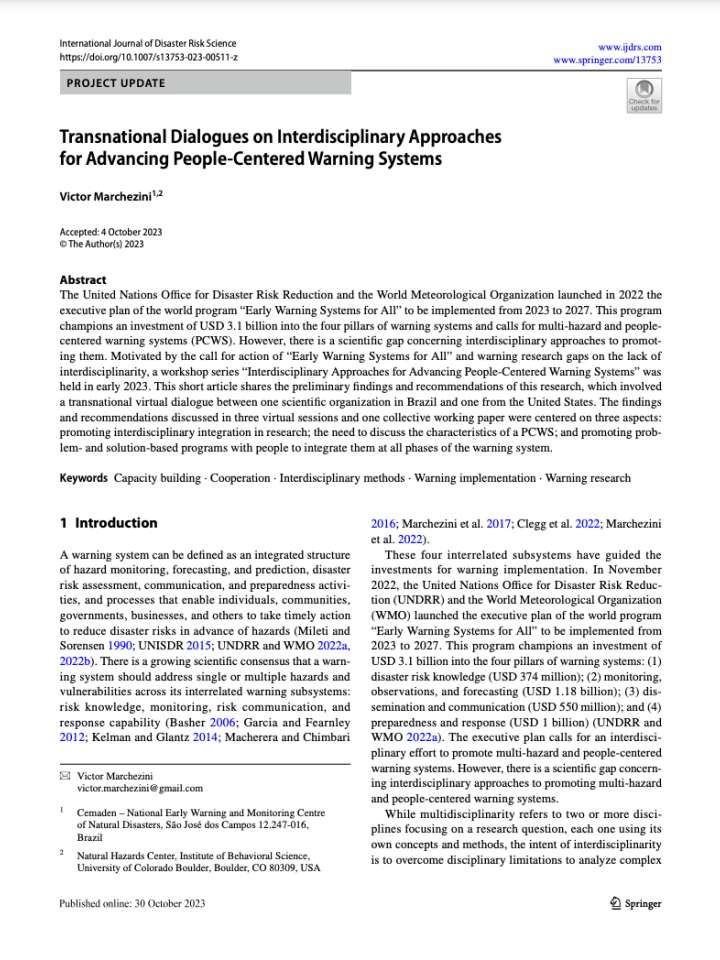Transnational dialogues on interdisciplinary approaches for advancing people-centered warning systems
This short article shares the preliminary findings and recommendations of this research, which involved a transnational virtual dialogue between the Brazilian Early Warning Center (Cemaden) and the Natural Hazards Center, University of Colorado Boulder, United States. The United Nations Office for Disaster Risk Reduction and the World Meteorological Organization launched in 2022 the executive plan of the world program “Early Warning Systems for All” to be implemented from 2023 to 2027. This program champions an investment of USD 3.1 billion into the four pillars of warning systems and calls for multi-hazard and people-centered warning systems (PCWS). However, there is a scientific gap concerning interdisciplinary approaches to promoting them. Motivated by the call for action of “Early Warning Systems for All” and warning research gaps on the lack of interdisciplinarity, a workshop series “Interdisciplinary Approaches for Advancing People-Centered Warning Systems” was held in early 2023.
This publication calls for the following in the interest of creating people-centered early warning systems:
- Foster respect for fellow scientists and practitioners, regardless of their field of study;
- Include the wisdom of people who are not scholars to share the roles and power of knowledge production;
- Interdisciplinary solutions to the complex problems of our times, including adequate funding to conduct this time-demanding work;
- Funding agencies need a culture change to promote problem- and solution-based programs that support inter- and transdisciplinary long-term projects, specifically by funding long-term projects (more than two years)
Explore further
